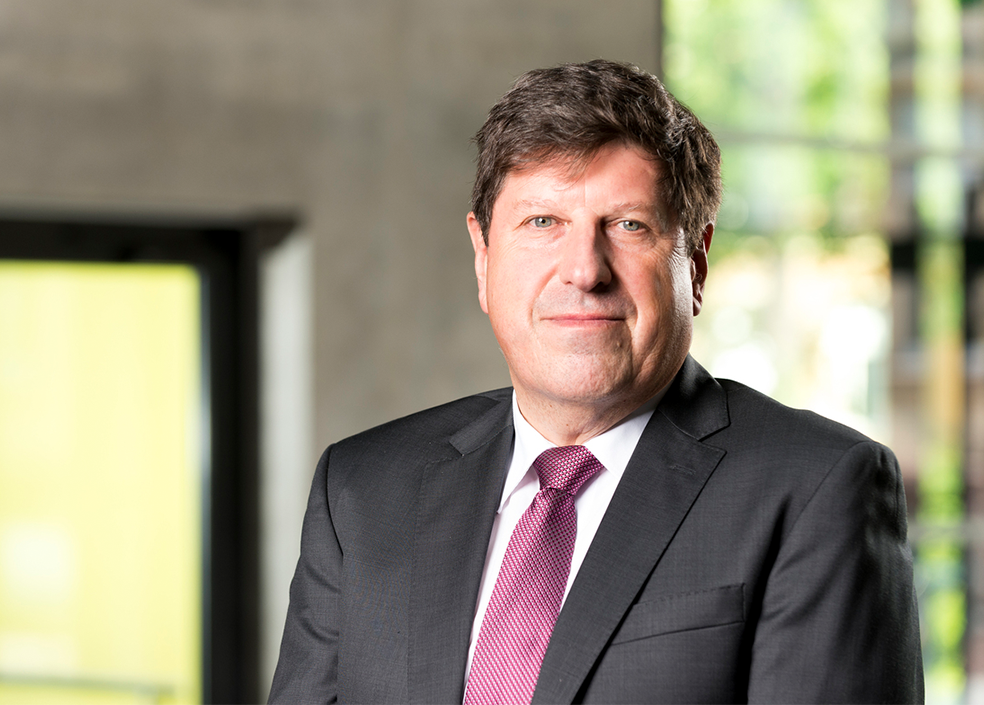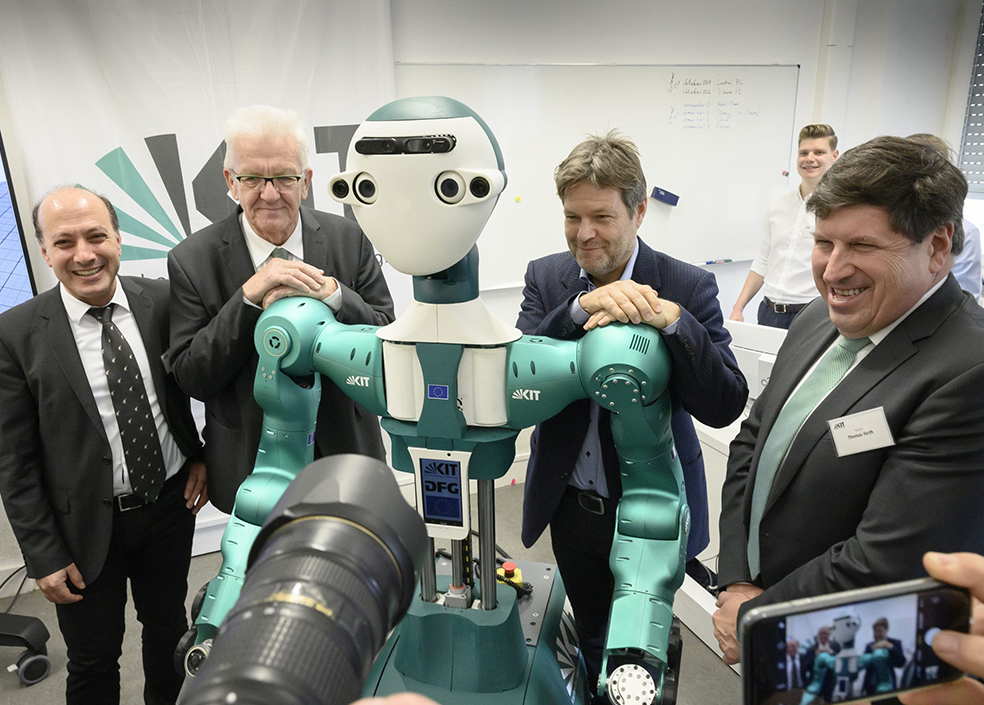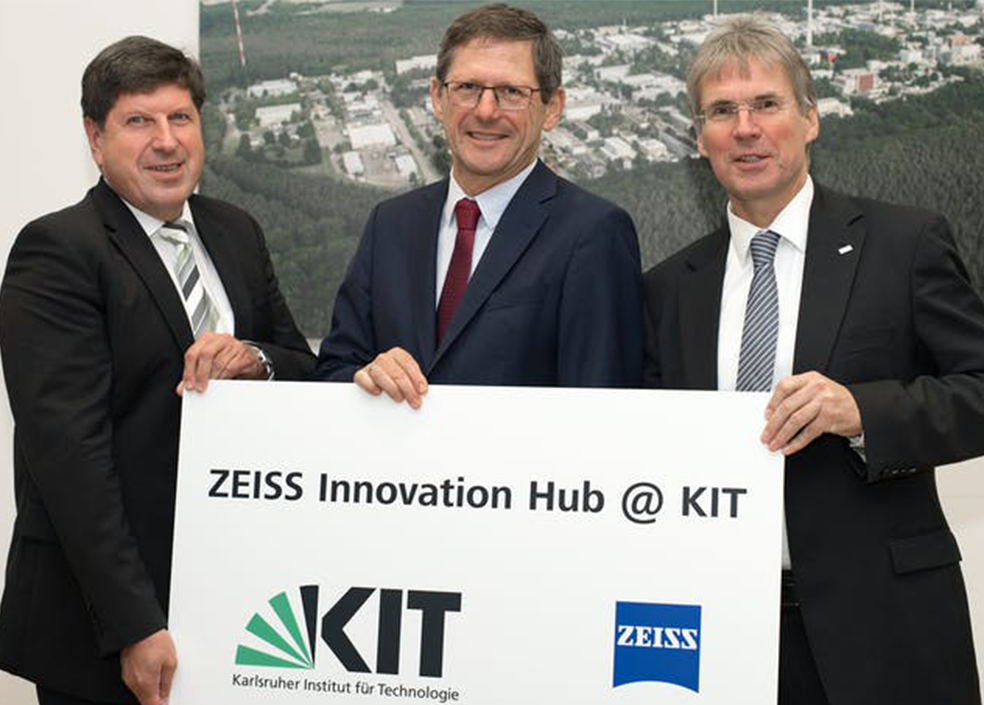Published on September 02, 2020
Transfer of research results from science to industry: A crucial success factor in the crisis

Applied research and the transfer of research results for the benefit of society and the economy runs like a red thread through Professor Hirth's career. For him, technology transfer at KIT is a task with important social consequences. The fact that research is not only scientifically excellent, but can also secure jobs and maintain companies, is a major driver of his work. We asked him about the current status and developments at the science-industry interface in the KIT environment.
Have the last months led to changes in the relationship between KIT and its economic partners?
Prof. Hirth: The situation since March is quite a challenge for all of us. We have tried to maintain the dialog with business partners digitally, and in most cases we have succeeded. I wouldn't be aware that we have lost industrial partners in our projects, even though there have been and will continue to be delays in current projects. All in all, I draw a satisfied interim conclusion.
What is the situation regarding the initiation of new joint projects?
Prof. Hirth: Digital-only project initiation more difficult, but possible. Our strategy was to tackle new topics with existing cooperation partners, and in doing so we were also able to use public funds. We have even gained new partners, also internationally, for example in Singapore, the USA or China. Experience has shown that things become difficult when a company has no presence in Germany at all. So despite digitization, regional proximity still plays a major role. This is also an important premise for technology transfer at KIT: We are involved in the Karlsruhe Technology Region, very well networked in the federal state and nationally. Our goal is to win more small and medium-sized enterprises as partners.

How can the KIT contribute as a strong and meaningful partner for SMEs in times of economic crisis?
Prof. Hirth: In two ways: On the one hand, we can support companies in finding solutions for technical problems. Successful transfer projects that we have carried out with SMEs show in particular how this can be achieved. Here we have to signal to companies even more strongly than before: Although we are a very large research institution, we still offer concrete forms of cooperation even for smaller projects with the goal of specific product development.
On the other hand, you can also see that the major social issues are increasingly coming into focus. Here, KIT has many technology offers for very different sectors, for example in the fields of energy system transformation, hydrogen, climate change, and health, to name but a few. To reorient oneself in times of economic crisis can turn a weakened company into a hidden champion. Cooperation with applied public research can be a decisive factor for success. The companies have the focus and the clients in mind, we as a research university have the staying power and the certain stability to pursue topics on a long-term basis. This combination is extremely valuable. For the benefit of a strong economy and thus social prosperity, we must intensify the dialogue between research and economy, especially SMEs.

What challenges will innovation-oriented research and technology transfer face in the coming year?
Prof. Hirth: These will primarily be challenges in communication. The clear message must be conveyed to the outside world: We want to support the economy. We have to bring the right partners from both sides together and overcome fears of contact wherever possible. Creativity on the one hand in developing ideas for the application areas of research topics and on the other hand in developing specific solutions to questions from the business world will play a key role. Organizational challenges, such as new digital formats, digital network maintenance and project support will keep us particularly busy. With all this we must not lose sight of our goal: Our work has not only technological content, but also economic, societal, political and social implications.
The interview was conducted by Anke Weigel

comments about this article
No Comments